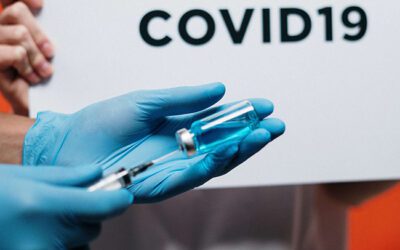 October is Breast Cancer Awareness month. Breast cancer is the most commonly diagnosed cancer in women with one in eight women diagnosed during their lifetime. Many cancers, including breast cancer, are caused by lifestyle factors, not necessarily genetics. Although there are risk factors that you cannot control, it is possible to lower your risk with lifestyle changes.
October is Breast Cancer Awareness month. Breast cancer is the most commonly diagnosed cancer in women with one in eight women diagnosed during their lifetime. Many cancers, including breast cancer, are caused by lifestyle factors, not necessarily genetics. Although there are risk factors that you cannot control, it is possible to lower your risk with lifestyle changes.
Exercise
Even 30 minutes of exercise a day can help lower your chances of breast cancer by 30-40 percent. The American Cancer Society recommends adults get at least 150 minutes of moderate, or 75 minutes of high intensity, exercise per week. That’s just 30 minutes a day for five days a week. Consider going to water aerobics or adding a daily walk to your day. Take a hike on the weekend. Simply get moving to enjoy a great benefit.
Limit Alcohol Consumption
Limiting alcohol consumption to one drink a day, if any. The American Cancer Society reports that those who drink 2-5 drinks a day have an increased risk, nearly twice as much of a risk, than those who do not drink.
Maintain a Healthy Weight After Menopause
Post menopause, when a women’s body stops producing the ovaries that make estrogen, a women’s body obtains estrogen from fat tissue, according to the American Cancer Society. Higher levels of estrogen have been linked to a higher risk of breast cancer. In addition, increased insulin levels in the body have been linked to many cancers, including breast cancer. Those who are overweight or obese tend to have increased insulin and therefore an increased risk. If you are unsure how to lose weight or need some tips, read our Top 5 Most Effective Weight Loss Strategies.
Dietary Changes
Although no specific foods have been correlated with the development of breast cancer, a large Women’s Health Initiative Trial has suggested that sticking to a low fat diet while increasing fruits, vegetables and whole grains may reduce the risk of breast cancer by helping women to lose excess weight. Dieticians also have recommended that women consume foods high in omega-3 fatty acids and to avoid trans fats, processed meats, and charred or smoked foods.
You can learn more about breast cancer locally and also help support research by participating in events or getting involved with the Oregon and SW Washington Susan G. Komen foundation chapter. Also, if you have questions about how we at AIM Health can help you or a family member, scheduled a Get To Know Us introductory meeting.



